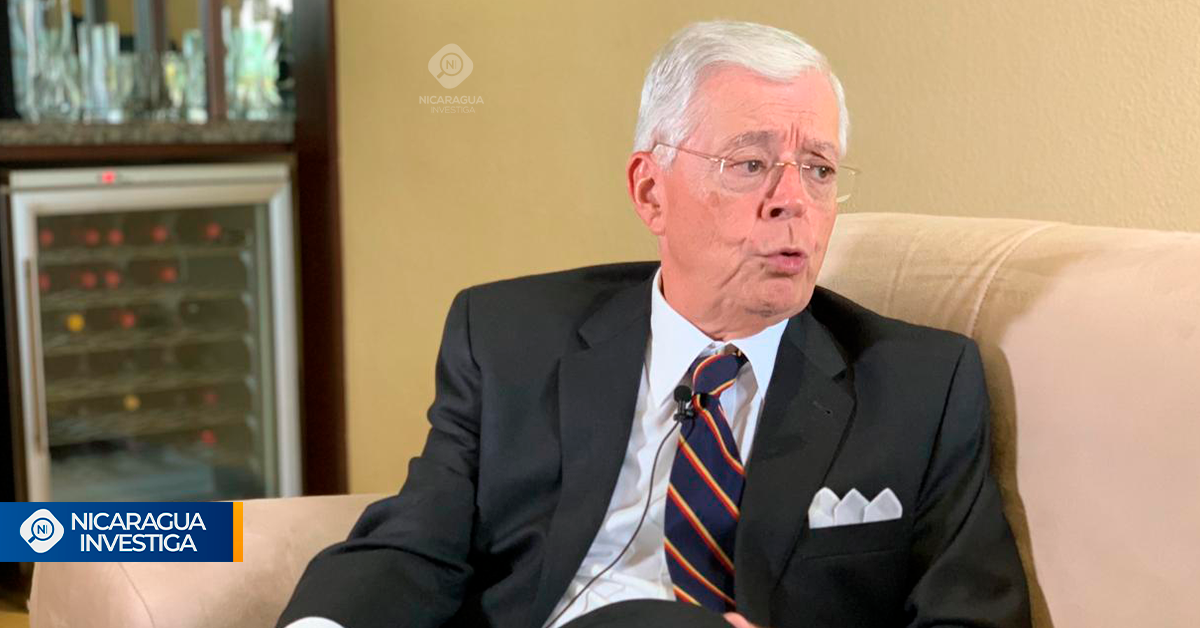RIO DE JANEIRO, BRAZIL – The opposition party Unidad Nacional Azul y Blanco (National Unity) has denounced the arrest of Nicaragua’s former foreign minister Francisco Aguirre Sacasa, part of a wave of arrests of dissident leaders and professionals, less than four months before the elections, in which the country’s president, Sandinista Daniel Ortega, seeks another reelection.
“We denounce the kidnapping of former Foreign Minister Francisco Aguirre Sacasa, unjustifiably detained by the Police, when applying the unconstitutional Law 1055. No more political prisoners in Nicaragua, freedom for him and the more than 140 people kidnapped”, indicated National Unity through its social networks.
Read also: Check out our coverage on Nicaragua
Hours after the denunciation, the Public Prosecutor’s Office confirmed the arrest and that Aguirre will be detained for at least 90 days while being investigated for alleged treason.
Likewise, the Public Prosecutor’s Office explained that today it filed a request for a special hearing of constitutional guarantees to request the extension of the period of investigation and judicial detention against the former Chancellor, which was admitted by a judge, who in turn ordered the preventive detention for 90 days.

According to the Public Prosecutor’s Office, Aguirre Sacasa is being investigated by the National Police “for having indications that he has attacked Nicaraguan society and the rights of the people” and that he has allegedly carried out “acts that undermine the independence, sovereignty and self-determination” of Nicaragua.
“He has publicly incited in different forums foreign interference in internal affairs, proposing blockades against the country and its institutions,” he continued. Likewise, “he has celebrated the imposition of sanctions against the State of Nicaragua and its citizens,” he added.
The National Police, which initiated last Tuesday an investigation against the former foreign minister for alleged “treason”, still does not confirm that he has been apprehended. Aguirre Sacasa’s relatives confirmed the arrest.
The police, which have not specified Aguirre Sacasa’s alleged crime, bases its investigation citing the Law for the Defense of the People’s Rights to Independence, Sovereignty and Self-Determination for Peace, urgently approved by the Sandinista-majority National Assembly last December.
This controversial law, promoted by the Ortega government, classifies “traitors to the homeland” and disqualifies them from holding public office.
THE EX-CHANCELLOR HAD SELF-CENSORED
Aguirre Sacasa, who was also Nicaragua’s ambassador to the United States during the administration of Arnoldo Alemán (1997-2002), has refrained from making public statements on the situation in Nicaragua since the police implicated him in a case involving the theft of two bronze bells.
The former Nicaraguan foreign minister, an official of the World Bank, has a pending case for the alleged theft of two old bronze bells from a parish church in the colonial city of Granada, which he allegedly bought from the suspects.
On that occasion, Aguirre Sacasa was shown handcuffed before official media. However, now the Police have not presented him, as has happened with the rest of the investigated persons, and for this reason, their relatives consider them “disappeared”.
Within the framework of the electoral process, Nicaraguan authorities have arrested opposition presidential aspirants Cristiana Chamorro, Arturo Cruz, Félix Maradiaga, Juan Sebastián Chamorro, Miguel Mora, Medardo Mairena, and Noel Vidaurre, who are also being investigated for alleged treason.
In addition, two former vice-chancellors, two historic dissident Sandinista ex-guerrillas, a business leader, a banker, a former first lady, six opposition leaders, two student leaders, two peasant leaders, a political scientist and specialist in political and electoral systems, a journalist, a commentator, two former NGO workers and a host of Cristiana Chamorro.
In the November elections, if Ortega wins his third consecutive reelection, he will guarantee 20 consecutive years of government and a total of 31 years, including the 11 years of the first revolutionary stage (1979-1990).

